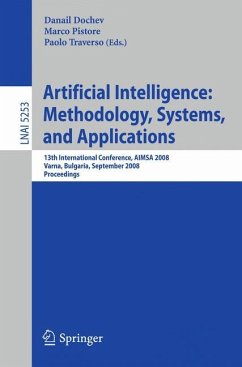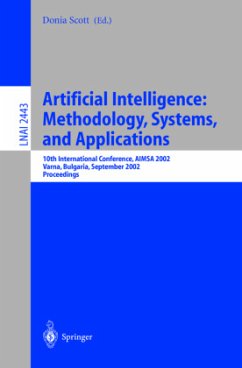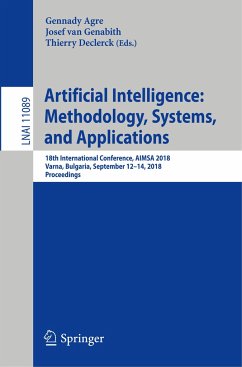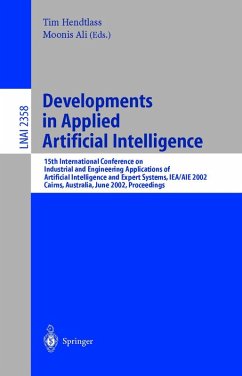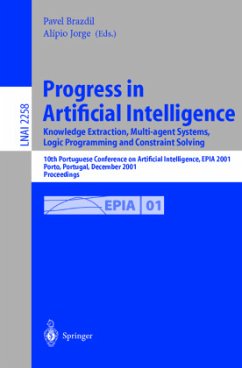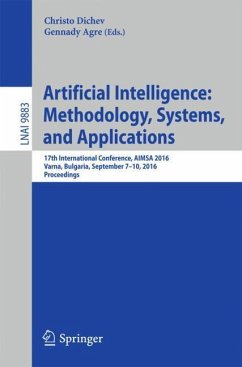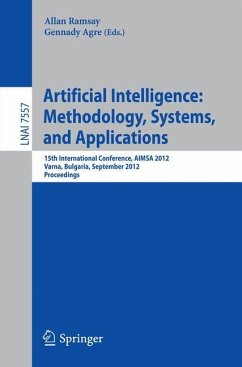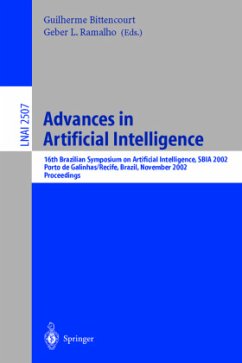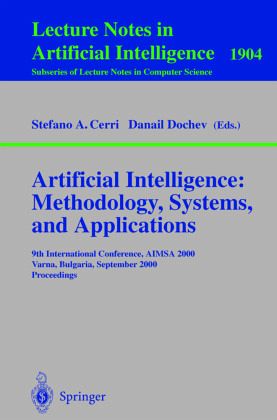
Artificial Intelligence: Methodology, Systems, and Applications
9th International Conference, AIMSA 2000, Varna, Bulgaria, September 20-23, 2000 Proceedings
Herausgegeben: Cerri, Stefano A.; Dochev, Danail

PAYBACK Punkte
20 °P sammeln!
Since 1984, the Arti?cial Intelligence: Methodology, Systems, and Appli- tions (AIMSA) conference series has provided a biennial forum for the pres- tation of arti?cial intelligence research and development. The conference covers the full range of topics in AI and related disciplines and provides an ideal - rumforinternationalscienti?cexchangebetweencentral/easternEuropeandthe rest of the world. The AIMSA conferences were previously chaired by Wolfgang Bibel, Tim O Shea, Philippe Jorrand,Ben du Boulay, Allan Ramsay and Fausto Giunchiglia. AIMSA 2000 is sponsored by ECCAI, the European Coordina...
Since 1984, the Arti?cial Intelligence: Methodology, Systems, and Appli- tions (AIMSA) conference series has provided a biennial forum for the pres- tation of arti?cial intelligence research and development. The conference covers the full range of topics in AI and related disciplines and provides an ideal - rumforinternationalscienti?cexchangebetweencentral/easternEuropeandthe rest of the world. The AIMSA conferences were previously chaired by Wolfgang Bibel, Tim O Shea, Philippe Jorrand,Ben du Boulay, Allan Ramsay and Fausto Giunchiglia. AIMSA 2000 is sponsored by ECCAI, the European Coordinating Committee for Arti?cial Intelligence. The AIMSA 2000 call for papers suggested that authors focus on Web p- cessing: knowledge construction from the Web, agents and communication l- guages, Web-based documents and interfaces, distance learning and electronic commerce. The importance of the conference for AI, and computer science - search in general, was re?ected by the presence of 60 quali?ed papers, out of which 34 were selected for publication by the Program Committee. Each paper was submitted to at least two independent referees and, in order to be accepted, had to be accepted by at least two of them. The high percentage of the accepted papers re?ects the autonomy of the Program Committee members, who judged that more than 50% of the contributions were worth publishing in the Proce- ings. Most rejected paperswerenot consideredofa lowscienti?c quality,but the Program Committee members judged that the required revisions on the texts could not be completed in the time required to allow editing of the paper before the ?nal presentation.






